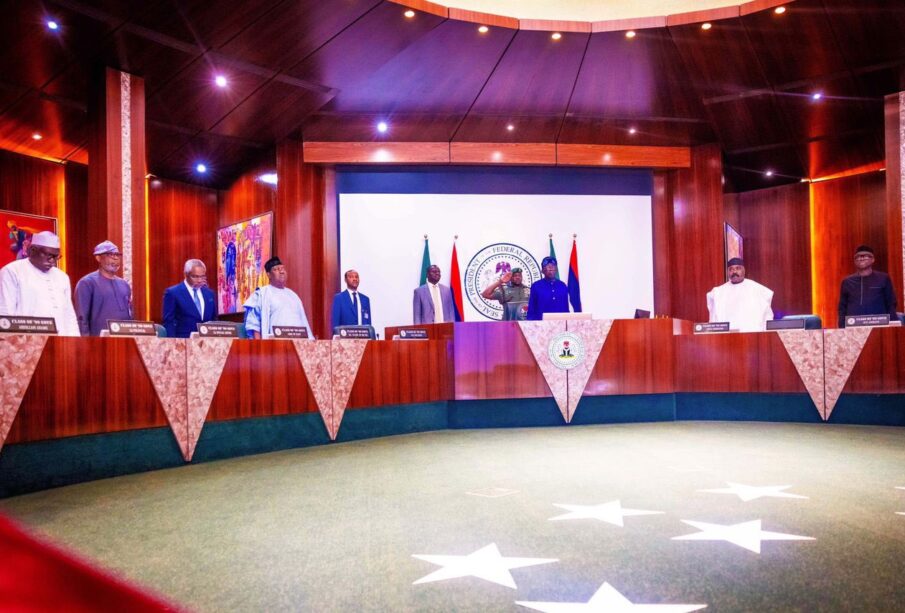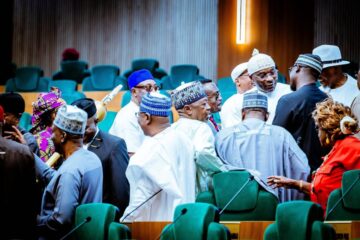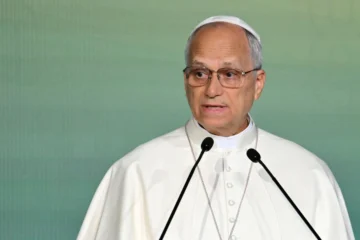FEC Steps Down Minimum Wage Memo For Consultations

FEC meeting
The Federal Executive Council (FEC) has stepped down from consideration and deliberation on the memo on the new minimum wage to allow President Bola Tinubu to engage in more consultation with stakeholders.
Minister of Information and National Orientation, Mohammed Idris, disclosed this on Tuesday while briefing State House correspondents on the decisions taken at the council meeting.
He said the President has studied the report submitted by the Tripartite Committee on Minimum Wage and would consult further before a final submission on a new national minimum wage to the National Assembly.
“I want to inform Nigerians here that the Federal Executive Council deliberated on that [the report of the tripartite committee on the new national minimum wage],” he said.
“The decision is that because the new national minimum wage is not just that of the Federal Government. It is an issue that involves the Federal Government, the state governments, local governments, the organised private sector, and of course, including the organised labour.
“That memo was stepped down to enable Mr. President to consult further, especially with the state governors and the organised private sector, before he makes a presentation [of an executive bill] to the National Assembly.”
Talks for a new minimum wage for Nigerian workers have been on for a while. The Minimum Wage Act of 2019, which made ₦30,000 the minimum wage, expired in April 2024. The Act should be reviewed every five years to meet with contemporary economic demands of workers.
President Bola Tinubu in January set up a Tripartite Committee to negotiate a new minimum wage for workers. The committee comprises the Organised Labour, representatives of federal and state governments as well as the Organised Private Sector.
However, the committee members failed to reach an agreement on a new realistic minimum wage for workers, forcing labour to declare an indefinite industrial action on Monday, June 3, 2024. Businesses were paralysed as labour shut down airports, hospitals, the national grid, banks, National Assembly, and state assemblies’ complexes.











